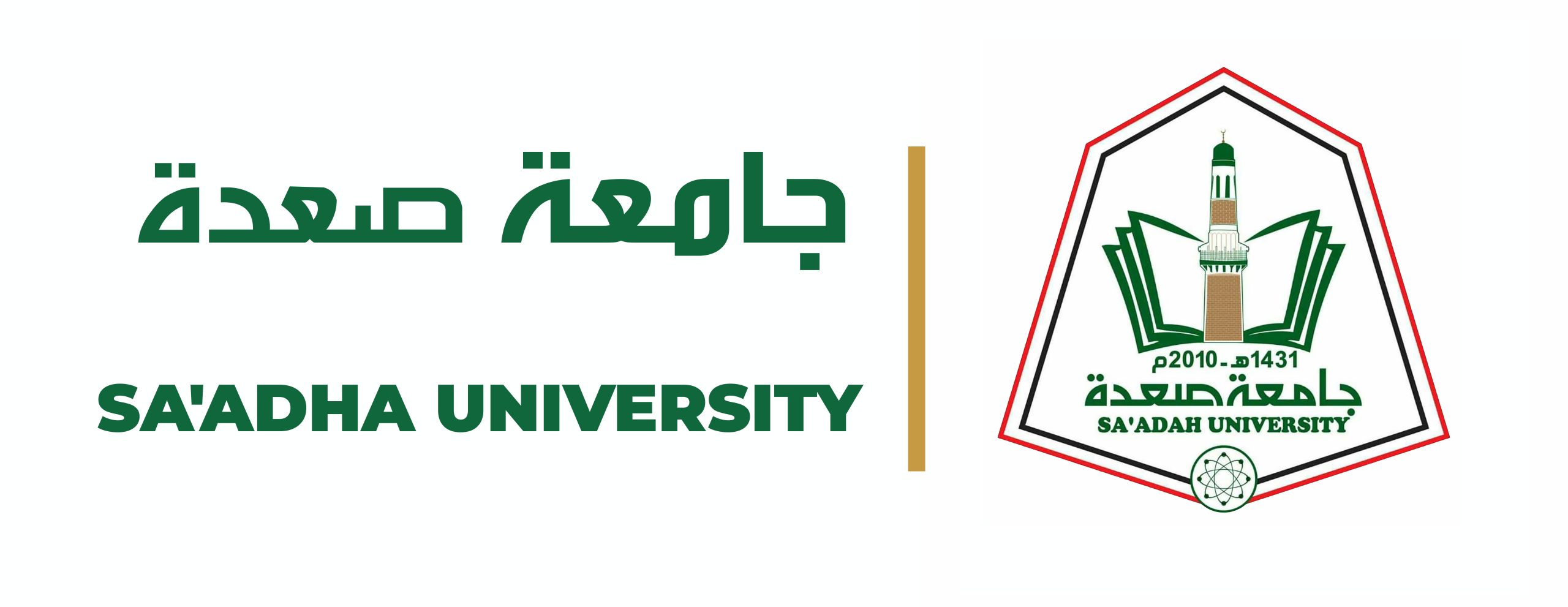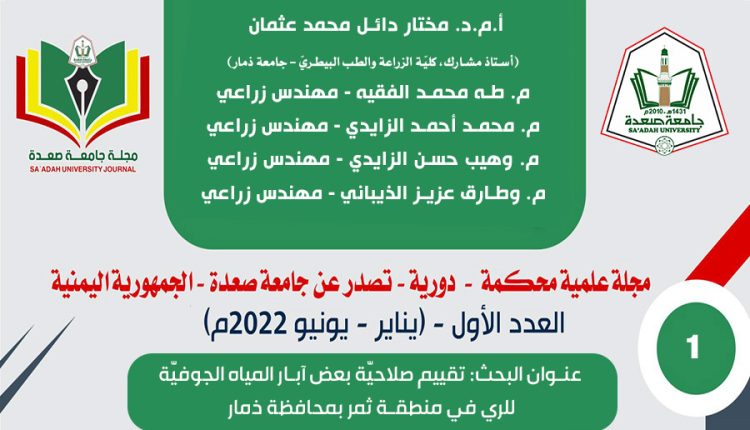تقييم صلاحية بعض آبار المياه الجوفية للري في منطقة ثمر بمحافظة ذمار
تقييم صلاحية بعض آبار المياه الجوفية للري في منطقة ثمر بمحافظة ذمار
أ.م.د. مختار دائل محمد عثمان – استاذ مشارك بكلية الطب البيطري – جامعة ذمار
م. طه محمد الفقيه – محمد أحمد الزايدي – وهيب حسن الزايدي – وطارق عزيز الذيباني
الملخّص: نُفِّذَت التجربة في منطقة ثمر وما حولها والتي تقع شرق جنوب محافظة ذمار خلال العام الدراسيّ 2020/2021م، حيث ينتشر في منطقة الدراسة عدد كبير من الآبار. تم اختيار (12) بئرا لتقييم مدى صلاحيتها لأغراض الري. أجريت التحاليل الفيزيائيّة والكيميائيّة والتي تضمّنت الأيونات الموجبة (الكالسيوم، المغنسيوم، الصوديوم، والبوتاسيوم) والأيونات السالبة (الكبريتات، الكلور، البيكربونات، والكاربونات) فضلاً عن قياس الرقم الهيدروجينيّ (PH) والتوصيل الكهربائي EC))، وبعض العناصر مثل البورون والحديد والنترات.
بيّنت نتائج الدراسة احتواء المياه على تراكيز ملحيّة متوسّطة إلى شديدة ممّا يعني ملائمتها لري المحاصيل الزراعيّة جيّدة التحمل للملوحة، أمّا من حيث قيم الصودية فأشارت النتائج إلى أنّ هذا التأثير محدود على نمو النبات، حيث تراوحت قيم (SAR) بين (8.70-0.56) ممّا يعني ملائمتها لأغراض الري لمختلف أنواع الترب.
كذلك بيّنت النتائج أنّ قيم درجة الحموضة (pH) والمنجنيز والبورون والفلور ونسبة المغنسيوم لم تتجاوز الحدود المسموح بها لمياه الري، وأن حوالي 17% من آبار منطقة الدراسة تجاوزت نسبة الحديد والكلوريد فيها الحد المسموح به لأغراض الري. في حين كانت حوالي 67% من الآبار منخفضة في محتواها من كربونات الصوديوم المتبقية RSC)) وبالتالي يمكن استعمالها للري ولا تسبب مشاكل عند استخدامها.
تشير خلاصة نتائج البحث إلى صلاحيّة مياه منطقة ثمر وما حولها بمحافظة ذمار لأغراض ري المحاصيل الزراعيّة غير الحسّاسة مع حاجة الأراضي الزراعيّة لعمليّة الغسيل والصرف إضافة إلى الإدارة الجيّدة والإدامة المستمرة لحماية ترب المنطقة.
اضغط هنا1 – 8_compressed
او اضغط على الرابط التالي:
https://drive.google.com/file/d/1JrFl6HKc-orTMJYGLaerWNDhhm4hNXXk/view?usp=share_link
Quality Assessment of Some Ground Water Wells for Irrigation
in Thamar Region – Dhamar Governorate
Othman M. D. M.1, Al-faqih T. M.2, Al-Zaeedi M. A.2, Al-Zaeedi W. H.2, Al-Dhybany T. A.2
-
1. Associate Professor – Department of Agriculture – Faculty of Agriculture & Veterinary Medicine – Dhamar University.
-
2. Agriculture engineer.

